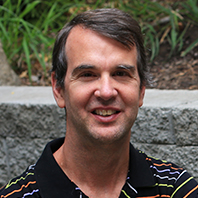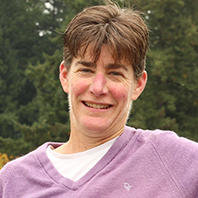Research
Dr. Molly Kelton aims to contribute to a world in which all members of society feel engaged and empowered to think deeply, expansively, and creatively about mathematics and STEM. Broadly, Dr. Kelton’s work seeks to critically examine and productively expand what counts as mathematics and STEM in contemporary society, with the goal of envisioning a more expansive and equitable mathematics education. Her research investigates mathematics learning in out-of-school time and across formal and informal environments, spanning K-12 classrooms, museums, maker spaces, and after-school clubs. She has contributed to research and design of several major mathematics exhibitions, including Math Moves! and Taping Shape. Across diverse settings, she also examines the role of physical movement and embodied experience in mathematical thinking and learning.
Dr. Kelton currently leads the NIH-funded Health Education through Arts-based Learning (HEAL) Collaborative. Learn more about HEAL here.
Dr. Kelton served as co-Principal Investigator of the Informal Mathematics Collaborative, a partnership among university mathematics educators, art and science museums, and community organizations serving under-represented youth. The Informal Mathematics Collaborative is funded by the National Science Foundation and has contributed to the design and research of numerous innovative public programs and exhibitions that blend mathematics, science, and the arts. This work advances current efforts to understand the educational potential of learning environments that integrate Science, Technology, Engineering, Art, and Mathematics (STEAM).
Teaching
Dr. Kelton serves and teaches in multiple teacher education, master’s, and doctoral programs in the department, including the Elementary Education undergraduate program, Master in Teaching program, Middle-level Mathematics Endorsement program, and the Mathematics & Science Education PhD program.
Selected Funding
Kelton, M. L., Owen, J. P., Danielson, R., & Butterfield, P. (2018-2023). Health Education through Arts-based Learning (HEAL): A Partnership to Investigate Interdisciplinary Science Programs in Rural Communities. Kelton is lead PI with WSU co-PIs Owen (CAHNRS), Danielson (College of Education), and Butterfield (College of Medicine). Research project through the National Institutes of Health Science Education Partnership Award program. Total awarded: $1,195,049. (Grant # 1R25GM129814-01).
Kelton, M. L. (2016-2018). InforMath: Mathematics to Enrich Learning Experiences in Science and Art Museums. Research project in collaboration with colleagues at San Diego State University and the Reuben H. Fleet Science Center through the Advancing Informal STEM Learning Program of the National Science Foundation. Funding for the 2016 – 2018 sub-award to WSU (with Kelton as PI for the sub-award): $57,916. Kelton is a co-PI for the 2013-2018 multi-institution project with Nemirovsky, R. (lead PI) and Siboroski, P. (co-PI). Total funding for multi-institution project awarded: $1,517,474. (DRL-1323587).
Kelton, M. L., Owen, J. P., Danielson, R., & Butterfield, P. (2017). Collaborative Research Retreat for the Health-sciences Education through Arts-based Learning (HEAL) Partnership. Collaborative research retreat with WSU collaborators funded through WSU’s College of Education Collaborative Research Retreat Funding Awards. Kelton is PI with co-PI’s Owen (CAHNRS), Danielson (College of Education), and Butterfield (College of Medicine). Total awarded: $855.
Kelton, M. L. (2017-2018). Gear-Up Professional Development Program. Kelton is sole PI on this rural professional development project in collaboration with Eureka Palouse! and the University of Idaho. Funded by private donation through WSU’s College of Education office of development. Total awarded: $5,000.
Ma, J. Y., Kelton, M. L., Kirkland, D., Hoadley, C. (2017-2018). Provostial Seed Grant for: Making the Most of Mathematics in Out-of-School Time (MOST): Mapping and Designing for Youth’s Mathematics Learning Pathways Across Urban Settings. Research project in collaboration with colleagues from New York University. Kelton is co-PI with Ma, J. Y. (lead PI), Kirkland, D. (co-PI), and Hoadley, C. (co-PI). This seed grant is funded by NYU’s Provostial Mega-Grants Initiative Seed Funding. Total awarded to NYU: $26,000.
Kelton, M. L., & Danielson, R. (2018-2019). Health Education through Arts-based Learning (HEAL): Establishing a New Partnership in Interdisciplinary STEM Education in Diverse Rural Communities. Proposal submitted to WSU’s New Faculty Seed Grant program. Kelton is lead PI with co-PI Danielson (College of Education). Total awarded: $22,043.
Frost, J., Kelton, M. L., Lesseig, K., Roth McDuffie, A., Rougee, A., & Slabit, D. (2018). Collaborative Research Retreat for Coherence in Cross-campus Mathematics Education Programs: Thoery-building and implementation. Collaborative research retreat with WSU collaborators funded through WSU’s College of Education Collaborate Research Retreat Funding Awards. Kelton is a collaborating researcher. Total awarded: $453.
Selected Publications
Kelton, M. L., Ma, J. Y., Rawlings, C., Rhodehamel, B., Saraniero, P., & Nemirovsky, R. (2018). Family meshworks: Children’s geographies and collective ambulatory sense-making in an immersive mathematics exhibition. Children’s Geographies, 16(5), 543-557.
Kelton, M. L., & Ma, J. Y. (2018). Reconfiguring mathematical settings and activity through multi-party, whole-body collaboration. Educational Studies in Mathematics, 98(2), 177-196.
Kelton, M. L., & Saraniero, P. (2018). STEAM-y partnerships: Interdisciplinary professional development and collaboration. Journal of Museum Education, 43(1), 55-65.
Nemirovsky, R., Kelton, M. L., & Civil, M. (2017). Toward a vibrant and socially significant informal mathematics education. In J. Cai (Ed.), Compendium for Research in Mathematics Education, (pp. 90 – 101). Reston, VA: National Council of Teachers of Mathematics.
Nemirovsky, R., & Kelton, M. L. (2016). Navigating turbulent waters: Objectivity, interpretation, and experience in the analysis of interaction. In A. A. diSessa, M. Levin, & N. J. S. Brown (Eds.), Knowledge and interaction: A synthetic agenda for the learning sciences (pp. 458 – 479). New York, NY: Routledge.
Hall, R., Nemirovsky, R., Ma, J., & Kelton, M. L. (2016). Towards a generous* discussion of interplay between natural descriptive and hidden machinery approaches in knowledge and interaction analysis. In A. A. diSessa, M. Levin, & N. J. S. Brown (Eds.), Knowledge and interaction: A synthetic agenda for the learning sciences (pp. 496 – 519). New York, NY: Routledge.
Ellis, J., Kelton, M. L., & Rasmussen, C. (2014). Student perceptions of pedagogy and persistence in United States Calculus. ZDM The International Journal on Mathematics Education, 46(4), 661-673.
Nemirovsky, R., Kelton, M. L., & Rhodehamel, B. (2013). Playing mathematical instruments: Emerging perceptuomotor integration with an interactive mathematics exhibit. Journal for Research in Mathematics Education, 44(2), 372-415.
Nemirovsky, R., Kelton, M. L., & Rhodehamel. (2012). Gesture and imagination: On the constitution and uses of phantasms. Gesture, 12(2), 130-165.





























